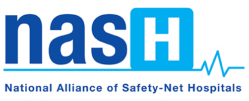The federal government should not survey providers to determine their costs for drugs covered by the section 340B prescription drug discount program, hospitals and hospital groups have told the Centers for Medicare & Medicaid Services.

Among the reasons hospitals conveyed in expressing their opposition were the cost of reporting the data in question; the design of the survey; the flawed premise underlying the survey; and the proposed rule’s requirement that all hospitals complete the survey and not just those that participate in the 340B program.
Among the groups criticizing the proposed regulation were the Association of American Medical Colleges, which wrote in its comment letter that
Congress did not design the 340B program to pay hospitals at acquisition costs…Congress designed the program so that eligible hospitals could purchase covered drugs at a discounted rate below the Medicare reimbursement rate and use the difference to reach more eligible patients and provide more comprehensive services.
The National Alliance of Safety-Net Hospitals was among the groups commenting on the proposed regulation. Writing on behalf of private safety-net hospitals, NASH observed in its November 27, 2019 formal comment letter that
 The 340B program was created by Congress to enable hospitals (and other providers) that serve low-income communities to maximize their resources when working to serve those communities. The program helps improve access to high-cost prescription drugs for low-income patients and helps put additional resources into the hands of qualified providers so those providers can do more for their low-income patients: provide more care that their patients might otherwise not be able to afford, offer more services that might otherwise be unavailable to such patients, and do more outreach into communities consisting primarily of low-income residents. This was the purpose of the 340B program when Congress created it in 1992 and Congress has done nothing to modify that purpose since that time: it has not directed that special assistance to qualified providers be reduced; it has not insisted that participating providers document the expenditure of their savings in service to their communities; and it most certainly has not dictated that 340B payments to eligible providers be reduced so that payments to non-340B providers could be increased. NASH believes that through this proposed data collection CMS is seeking to exert authority it does not have to demand of providers information to which the agency is not entitled.
The 340B program was created by Congress to enable hospitals (and other providers) that serve low-income communities to maximize their resources when working to serve those communities. The program helps improve access to high-cost prescription drugs for low-income patients and helps put additional resources into the hands of qualified providers so those providers can do more for their low-income patients: provide more care that their patients might otherwise not be able to afford, offer more services that might otherwise be unavailable to such patients, and do more outreach into communities consisting primarily of low-income residents. This was the purpose of the 340B program when Congress created it in 1992 and Congress has done nothing to modify that purpose since that time: it has not directed that special assistance to qualified providers be reduced; it has not insisted that participating providers document the expenditure of their savings in service to their communities; and it most certainly has not dictated that 340B payments to eligible providers be reduced so that payments to non-340B providers could be increased. NASH believes that through this proposed data collection CMS is seeking to exert authority it does not have to demand of providers information to which the agency is not entitled.
Learn more about hospital industry opposition to the proposed 340B regulation in the Fierce Healthcare article “Hospitals blast CMS’ proposed 340B survey.”

